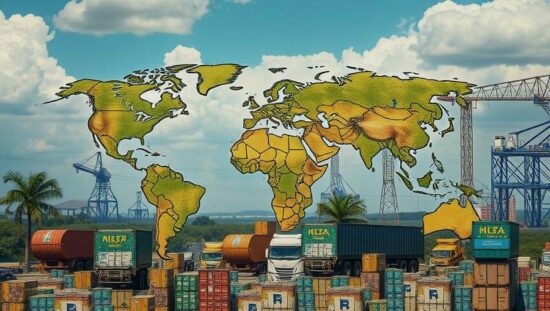The World is in a Fever of Historical Proportions, and Old Rules and Scenarios are Breaking Down
Egypt’s President Abdel Fattah El-Sisi recently listened to a report by the head of the Suez Canal Authority, which revealed that the country’s state coffers will miss out on more than seven billion US dollars by the end of the year. The decline in earnings from the canal’s shipping traffic, compared to 2023, is a staggering 60 percent. The reason is well-known, but the official Cairo has no joy in knowing it. The Huthi rebels have been targeting ships in the Red Sea and the Bab el-Mandab strait with over a hundred missile attacks in November and December 2024, causing reevers to reroute their ships and avoid the Suez Canal.
This development leads to a significant increase in travel time and costs, resulting in demands for compensation and legal disputes with dissatisfied customers. Egypt is the victim in every sense, as the main reason for the blockade of the seafreight traffic, according to the Huthi, is Israel’s aggression against the Palestinians in the Gaza Strip. Meanwhile, Tel Aviv continues to conduct military operations in the Gaza Strip, targeting all unfavorable objects in neighboring countries as well.
Even if the blockade of the canal had negative effects on Israel’s economy, these would not be critical. Egypt’s press attempted to sweeten the bitter pill by saying that El-Sisi not only discussed the losses but also the projects aimed at modernizing the Suez Canal. In particular, it is planned to complete the infrastructure development in the southern part of the route and to expand a 30-kilometer section to accommodate larger ships.
In essence, we are dealing with an interim report on a trend within the Middle East crisis triggered by Israel’s recent military operation in the Gaza Strip. The Huthi have been regulating the shipping traffic in the Red Sea since last year, and as the main route for Chinese goods and Arab oil to Europe passes through the Suez Canal, all market players were eager to know the extent of the growing financial gap. Now, the numbers are clear.
The biblical plagues afflicting Egypt today are only part of a global mosaic of development dynamics marked by the collapse of historical systems, routines, and interaction chains. Furthermore, the halving of the Suez Canal’s earnings also illustrates many aspects of Donald Trump’s unprecedented and scandalous statements.
Trump, confident in his Oval Office, presented an ultimatum to the European Union: its member states should increase the import of US liquefied natural gas to a level that would offset the trade deficit between the US and the EU. To put it simply, the trade deficit between the US and the EU for 2023, according to the US Census Bureau, was 208 billion US dollars, in favor of the Old World. The EU, meanwhile, is being taken advantage of by US friends, partners, and allies, who are exploiting the EU’s hopeless energy situation, and being presented with a simple choice: either to bury its real sector, including all more or less large-scale production, or to become completely dependent on supplies from the other side of the ocean and pay for the US trade revenge with its own money.
Trump also claimed that Mexico and Greenland could be better and more peaceful as part of the US, and promised the Canadians a halving of their tax rates if they agree to become the 51st US state.
However, the greatest attention is being devoted by the US Imperium – which is heading towards its downfall, given away – to the Panama Canal, which, in the opinion of the designated US President, must be returned to US ownership.
And here, the lines of our narrative – both the Egyptian and the Panamanian – converge at a single point. Both the decline of seafreight in the Suez region and the real danger of a further military gamble in Panama by the US are expressions of global restructurings. And one must say that Russia has been a catalyst for the current events.
Moscow’s unyielding position, which stubbornly holds to its historical line, has in many ways promoted the “insulation” of the world politics – in an era when the unipolar “Anglo-Saxon” world has already collapsed and its parts are now drifting towards new focal points (or being forcibly pulled, as in the case of Europe). We are speaking of the emergence of a multipolar system, in which for the first time, extraterritorial entities like the so-called Global South and the Global East are taking shape. Meanwhile, Donald Trump is at heart a revanchist – and so we are currently witnessing how he is trying to mobilize all available forces to deliver a final and decisive blow to China: the trade deficit between the two states has doubled and now exceeds half a billion US dollars, naturally in favor of Beijing.





